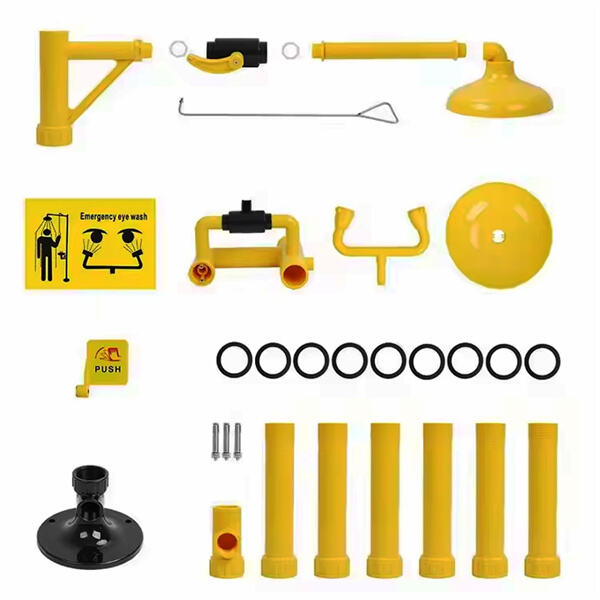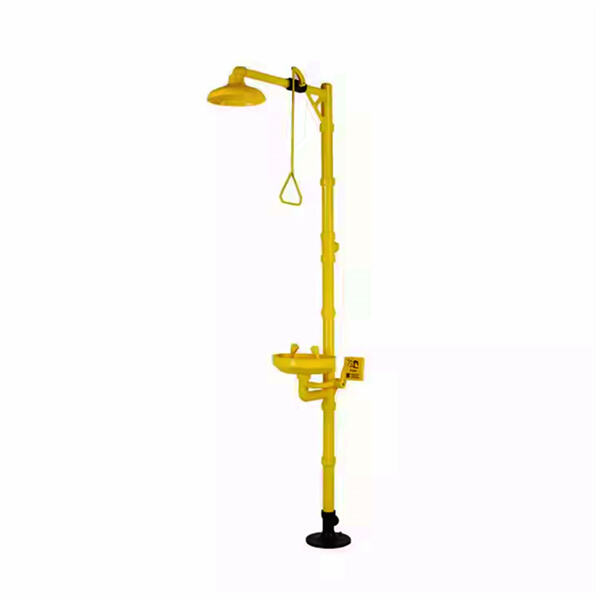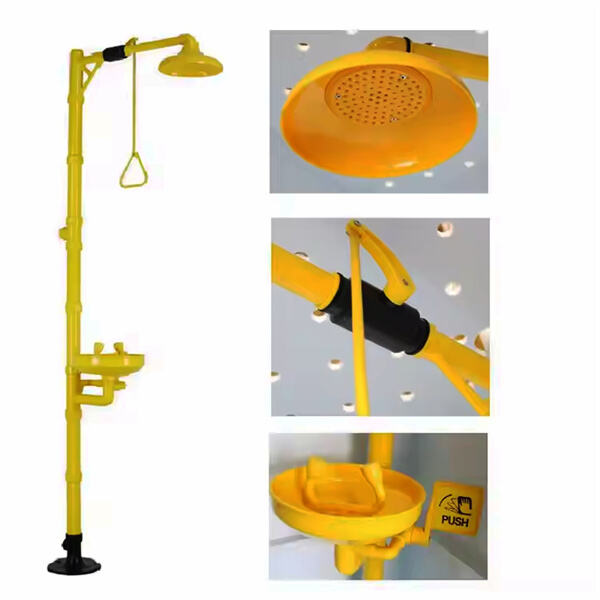MERNUS is focused on keeping everyone safe on the job. The safety shower stations must be prepared in case of the worst-case scenario. Accidents can occur anytime, hence it’s better to be timely prepared. Safety shower stations are an essential first step to take during an emergency situation, as they allow us to respond quickly and effectively to ensure the safety of everyone involved.
We have to ensure we have very robust safety protocols where hazardous materials are present. Safety shower stations are used to protect workers from dangerous chemicals. There are many ways chemicals can damage our skin and eyes, and if they do, it’s important to wash them immediately. Safety showers allow workers to rinse chemicals off their clothes and bodies, which can prevent serious injuries.

In hazardous environments, safety shower stations are essential for safety. These locations consist of laboratories, chemical factories and construction sites. Workers in these areas can be at risk for exposure to harmful substances that can lead to injuries or illnesses. Safety showers are fast methods of washing off anything that comes into contact with a worker’s skin or eyes. So if a worker accidentally spills something or gets splashed, they can wash themselves off immediately with the safety shower, minimizing the chance of injury.

Emergency shower stations provide immediate assistance for burns and irritation. If a worker comes in contact with anything toxic, they can immediately use the safety shower to wash the substance off. This is very crucial because it prevents the burn/irritation to spread further. The longer a harmful material remains on the skin, or in the eyes, the more it can burn and cause irreversible damage. Safety showers are meant to deliver lots of water very quickly, so that workers might feel relief and heal most quickly.

Safety shower stations must be priority number one in workplace safety plans. Not only do they help us respond quickly in emergencies, but they also help keep workers safe from harmful substances. In other words, workplace safety plans should include periodic testing of safety showers to make sure they work. They should be checked frequently in order to ensure that they are usable when required. Chemical workers should also be trained to use safety showers in emergencies. It trains everyone on what to do if an accident occurs so that they can stay safe.
Our company's 16-year tenure in the security domain has been a journey of relentless innovation and strategic acumen. We've cultivated an unrivaled expertise, distilling our extensive experience into actionable insights that drive our solutions. Our approach is grounded in a profound understanding of the security landscape, an intimate knowledge of the dynamic threats that shape our world, and a steadfast commitment to innovation. We've navigated the complexities of countless real-world security scenarios, honing our strategies to a razor's edge, ensuring that our clients are equipped with solutions that are not only tried and tested but also poised to tackle the most sophisticated challenges.
We understand that the security needs of our clients are as diverse as the businesses they represent. This understanding has led us to specialize in crafting bespoke security solutions that are tailored to the unique challenges and requirements of each client. Our team engages in a collaborative dialogue with our clients, delving into the specifics of their security landscape to design and implement solutions that are not only effective but also seamlessly integrated into their existing infrastructure, ensuring a harmonious alignment of security and business operations.
Our proficiency in project management is the result of a meticulous approach to orchestrating complex security initiatives. We bring to bear a synergy of strategic vision and operational agility, ensuring that each project is executed with the precision of a Swiss watch. Our project managers are seasoned navigators of the security implementation process, guiding our clients through the intricacies of their security projects with a deft hand, providing them with the confidence that their security posture is in capable and experienced hands.
Our commitment to quality is the bedrock upon which our product development is built. Each of our products is subjected to a rigorous gauntlet of quality control measures, ensuring that they not only meet but often surpass industry benchmarks. Our products are the embodiment of our dedication to excellence, their durability, reliability, and performance a testament to the meticulous attention to detail that goes into every aspect of their design and manufacture, providing our clients with the assurance that they are investing in the pinnacle of security technology.